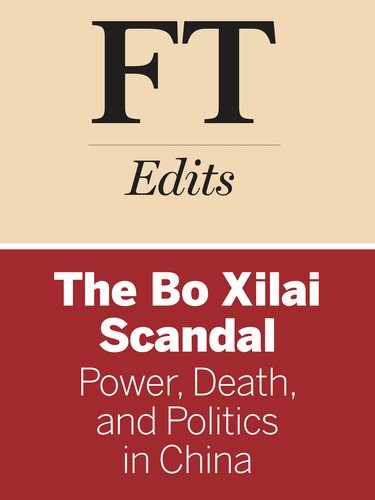Bo in limbo
As Beijing slipped into autumn from the scorching summer months of 2012 there was still no clear indication of how the government planned to deal with Bo Xilai.
Most people expected a carefully-staged show trial to be held in secret and announced after the fact, an assumption supported by the almost comic brevity and obvious stage management of Gu's trial in distant Anhui province.
Her “open” trial was closed to international media organisations and the official account issued by state media and the court left many unanswered questions as to Gu's real motive and the possible role played by others in Heywood's murder.
There was not a single mention throughout the trial of Bo Xilai or of corruption, despite the obvious discrepancy between the Bo family's lavish lifestyle and their official income.
In court, Gu appeared bloated and dazed and in her brief statements she accepted the charges against her and gave up her right to appeal her suspended death sentence. “This case has been like a huge stone weighing on me for more than half a year. What a nightmare,” she said in her closing statement. “The case has produced great losses to the Party and the country, for which I ought to shoulder responsibility and I will never feel at ease.”
People familiar with the decision-making process said the details of her sentence were almost certainly decided by China's most senior political leaders. With a conviction rate of more than 98 per cent in China, almost all defendants plead guilty in the hopes of receiving a lighter sentence and as a former prominent lawyer, Gu would have been well aware of her likely fate.
The brief but sensational trial predictably cast Gu in the role of the scheming evil empress who ultimately caused the downfall of her powerful husband, a caricature that has a long and hallowed tradition throughout Chinese history.
Wang Lijun's brief and secretive two-day trial did shed a little light on what might happen to Bo Xilai. “The facts of the crime are clear, the evidence is solid and abundant and [Wang] will be held responsible for his crimes,” an official announcement said, using language that all but guaranteed Wang's eventual conviction and confirmed the trial as largely a political show.
Bo was not mentioned by name in the official account of Wang's trial on charges of defection, abuse of power and corruption. An implicit reference however to him and his alleged role in covering up the murder committed by his wife provided a hint that he could eventually face criminal charges himself.
But in the case of Bo Xilai, the Party faced a serious dilemma with the potential to destabilise further the country's volatile political situation.
Given Bo's enormous popularity among ordinary people, an unconvincing official account backed by threadbare evidence could lead many Chinese to assume the entire affair was a stitch-up and that Bo was the victim of political infighting.
On the other hand, if the case against him was presented too fully, with ample evidence of his involvement in corruption, murder and plots, then the public might question how someone so craven and deranged made it to the top of the political system.
That could lead to even more people in the country shifting their attention to the assets and intrigues of other senior leaders.
One person with close ties to Chinese political leaders said he believed Bo could face a fate similar to that of Zhao Ziyang, the former Communist party general secretary who opposed the violent crackdown on student demonstrators in 1989.
Zhao spent the last 16 years of his life under house arrest until his death in 2005 and was allowed to leave his home only on special occasions, usually to play golf.
Despite the blow to party legitimacy and the potential for the scandal to spread, by September 2012 the once-in-a-decade leadership transition scheduled for the following month appeared to be still on track. Some analysts even said that without the destabilising presence of Bo – with his emperor complex, or arrogant belief in his right to rule – a more harmonious and effective leadership could emerge after the handover in autumn.
“Bo and his ambition were seen as the most dangerous force in Chinese politics and people inside the Party always compared him to Hitler,” said one senior Chongqing official who worked closely with Bo. “He was a Marxist Leninist who opposed western liberal democracy but the irony is that if the Chinese people were allowed to vote, he probably would have been elected president.”
